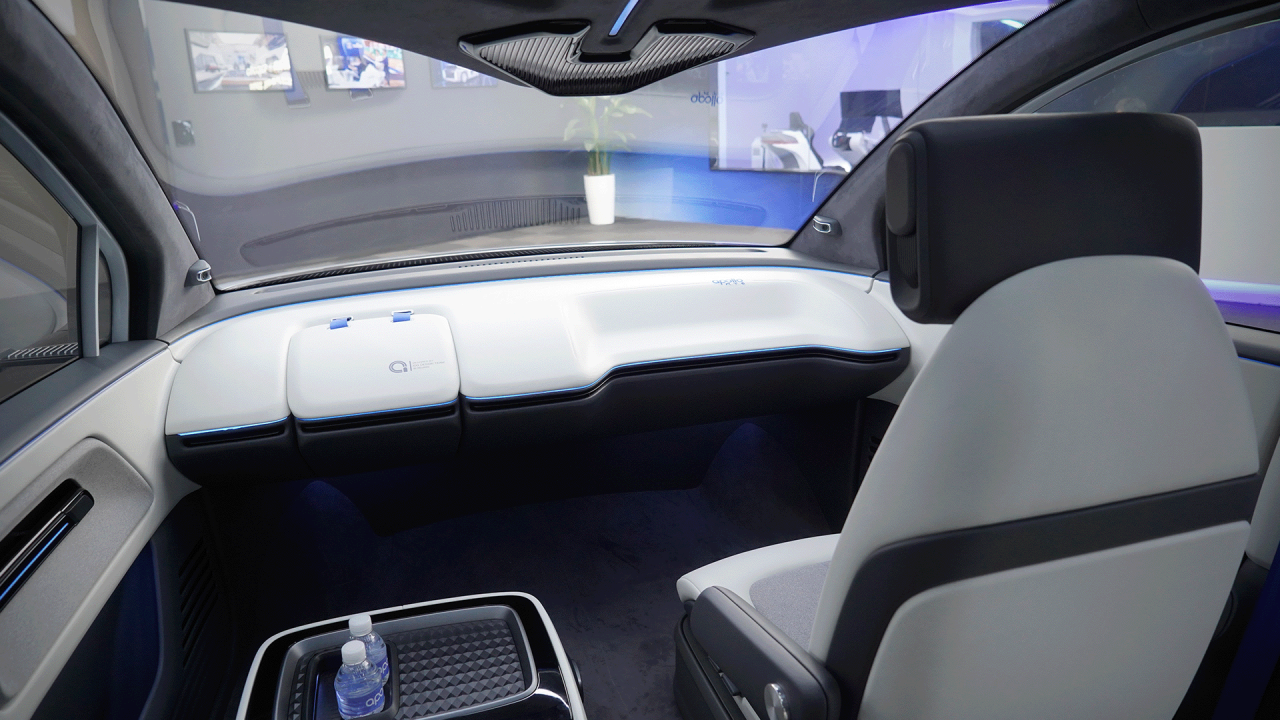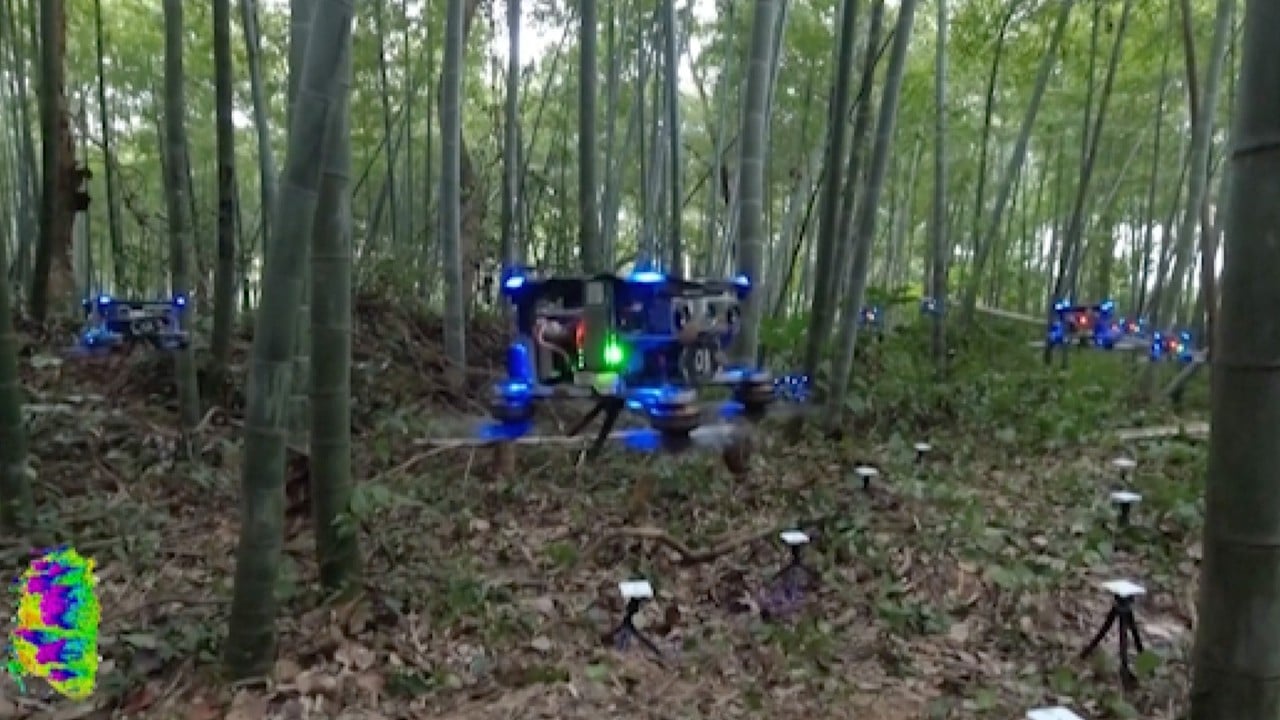
Xiaomi and Baidu-backed Hesai to offer smaller and cheaper lidar sensors for smart EVs, as it fights competition at home and eyes growth abroad
- Firm will make more ‘internationalisation’ efforts, invest lots of capital and think of ways to seek more business and orders, co-founder says
- Xiaomi, Baidu, Meituan and German automobile parts supplier Bosch are among its key investors
Hesai Group, the world’s sixth-largest maker of sensors for smart cars, aims to add cheaper and more innovative products to its line-up to overcome intensifying competition from domestic rivals and to reach bigger volumes in overseas markets.
The company will consistently build its core technical competitiveness, whether it is in terms of manufacturing capability or research and development, David Li Yifan, Shanghai-based Hesai’s co-founder and CEO, said in an interview with the Post. “We will also make more efforts in internationalisation, and we will invest lots of capital, and think of ways to seek more business and orders,” he said.
“We are making lidar sensors in various formats. For example, this year we will launch a solid-state [sensor], which will be cheaper.”

Xiaomi, Baidu, Meituan and German automobile parts supplier Bosch are among its key investors. Among these firms Baidu has the biggest stake, as it holds 5.9 per cent of Hesai’s total ordinary shares on an as-converted basis, and 2 per cent of its aggregate voting power.
Net revenue at Hesai surged 80 per cent to 720 million yuan (US$104.6 million) in 2021, and jumped more than 70 per cent to 793 million yuan in the first nine months last year, despite a two-month lockdown in Shanghai.
In the first three quarters of last year, it made 56 per cent of its sales from the Chinese mainland market, while the United States and Europe accounted for 27.6 per cent and 10 per cent, respectively.
Xpeng dials up its Tesla rivalry with world’s first lidar-fitted car
“Solid state lidar is seen as the end-game for market participants. It is smaller, cheaper and more stable compared with mechanical and semi-solid state lidar. But there is still a long way to go for [its] technological implementation,” said Sara Shang, a senior manager at Bain and Company based in Shanghai. A 60 per cent compound annual growth rate (CAGR) to US$900 million by 2027 is expected for China’s lidar sector, she added.
Chinese EV makers such as Li Auto and Nio have followed in Xpeng’s footsteps. Others like BYD, Geely, Jidu and Lotus are also expected to launch new models fitted with lidar sensors later this year, bringing down prices. Lidar sensors cost about 5,000 yuan on average last year, versus as high as 10,000 yuan in 2020, according to Huatai Securities. They could fall to 2,185 yuan in 2027, it forecast.
As a result, gross margins at Hesai narrowed to 44 per cent last year from 53 per cent in 2021 and as high as 70 per cent in 2019.
The drop is reasonable, Li said. “In any industry, when it enters a stage of mass production and lower price from a small amount of production with high price, it naturally will face the problem of [slimming] margins.”
The lidar sensor market is expected to grow at a CAGR of 106 per cent to 29.8 billion yuan in 2027 in terms of value of deliveries, according to an estimate by Huatai Securities earlier this month.
“China’s smart auto industry is developing faster, but Europe and the US have started to rapidly catch up,” he said. “This year we will accelerate our globalisation. We hope to have better recognition on the global stage, that’s more of the reason why we went public [in the US].”
Lidar sensors measure distance using laser beams to generate highly accurate two or three dimensional maps of items surrounding the vehicle. Described as the eyes of autonomous driving, the sensors are also used in various industries, ranging from agriculture to advanced manufacturing.
In China, most of the cars use preliminary autonomous driving technology classified as level 2 (L2) or L2+, which requires drivers to be alert and ready to take control if the system is unable to execute the task, according to a classification system published by standardisation body SAE International.
At present, intelligent EVs with driver-assistance systems are not fully autonomous. Full automation, or L5, will not require any human intervention.
The development focus for lidar has switched to China although early players originated from the US. Chinese companies are able to take up opportunities as American firms’ productivity was low and defect rates were high, while the US government also restricted these technology exports to China, said Zhang Xiang, dean of the new energy vehicle technology research institute at Jiangxi New Energy Technology Institute.
“Competition is big currently and there are quite a large number of such companies, although Hesai is a leader in the industry,” said Zhang. “The sector’s outlook is positive, but when the final push will come is uncertain, because autonomous driving is still experiencing bottlenecks”, thus impacting demand for lidar sensors.
Additional reporting by Daniel Ren.



